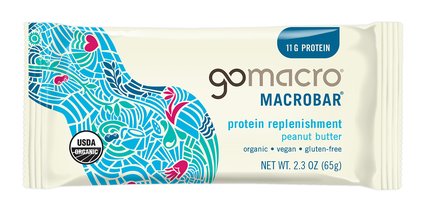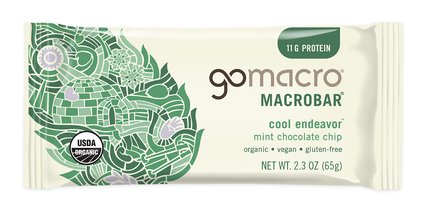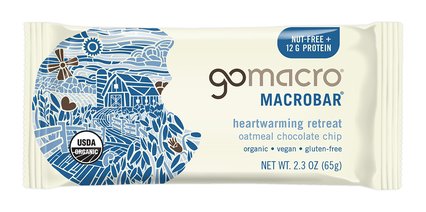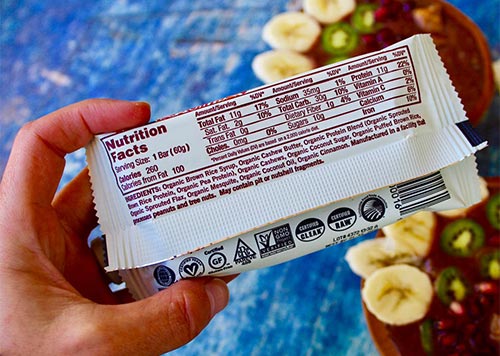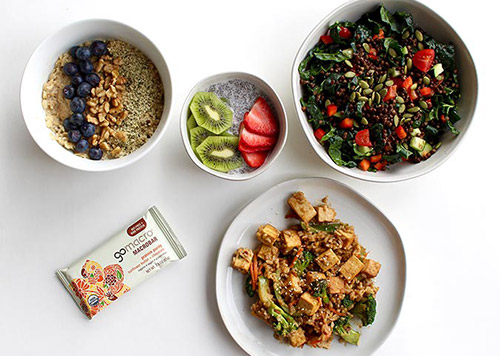Protein Bars vs Shakes: What’s Best?
When you’re looking for a high-protein snack what should you reach for – a protein bar or a protein shake?
The best option will depend on a number of factors including your goals, needs, and personal taste preferences. On average, most people should get between 10-35% of their their daily calories from protein. People who exercise regularly or are over age 40 typically need even more protein to prevent muscle loss. While we recommend reaching for whole foods first, sometimes supplementing is necessary to help you reach your goals. Both protein bars and protein powders or shakes can help you meet individual protein requirements – but both offer different advantages when it comes to nutrition and convenience.
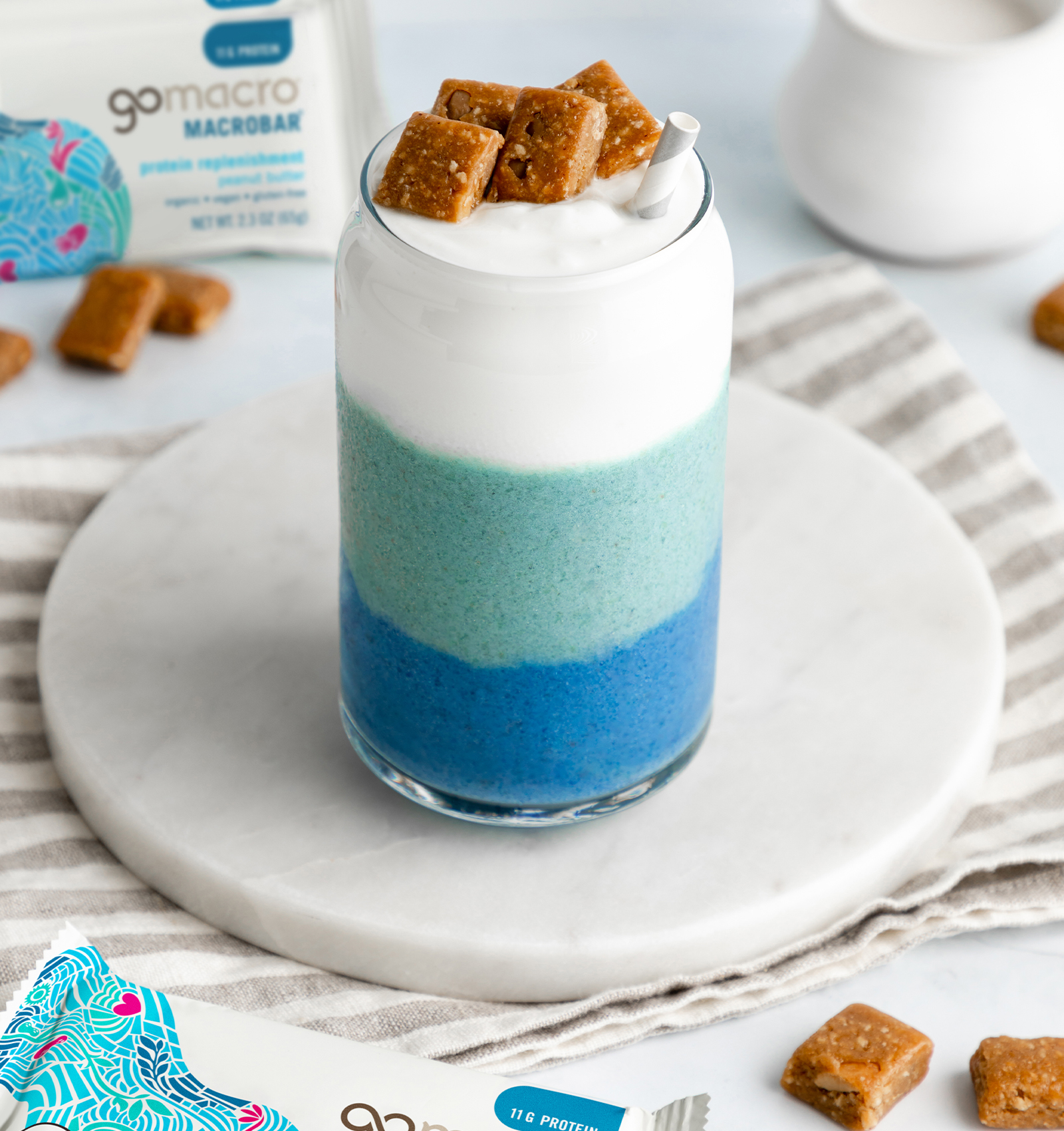
How to Evaluate Protein Bars
Not all protein bars are made equal. Ingredients vary greatly among the many protein bar brands on the market. Some use animal sources of protein like whey, casein, or egg whites, while others use plant sources like soy, pea, or brown rice. Some use protein isolates, a food processed down to just the protein, and some use protein concentrates, which contain more ingredients from the original food source. Some include artificial preservatives, flavorings, and additives, while others have simple, straightforward ingredient lists.
While having an abundance of options can be tricky, the key is to find a protein bar that fits your needs. For example, an endurance athlete may want something different than someone with a desk job trying to manage their blood sugar levels. So, while it’s tempting to only look at the number of grams of protein, be sure to also take a look at the ingredient list and nutrition facts in their entirety. To help simplify this process, instead of asking “Are protein bars good for you,” try asking yourself, “Is this particular protein bar good for me and my goals?” Here are some factors to consider as you make this decision.
Protein Isolates vs. Protein Concentrates
As mentioned, there are two main forms of protein found in bars and shakes: isolates and concentrates. Isolates simply 'isolate' just the protein from the original source, while concentrates retain more nutrients from their original source.
Both isolates and concentrates can be beneficial depending on your goals. For example, someone who is focused on building lean muscle might prefer an isolate as it has a higher percentage of protein per serving. However, someone eating a whole-foods, plant-based diet, will likely prefer a protein concentrate as they will get more fiber, vitamins, and nutrients from the original source.
At GoMacro®, we choose to use organic pea protein concentrate in our protein bars because it more closely aligns with our mission to support a balanced, plant-based diet while also providing an extra boost of protein.
Benefits of Protein Bars
If your preferred method of supplementing your protein intake is snacking on a protein bar, you’re definitely not alone. Over 44 million Americans eat protein bars each year, and the growing number of options on the shelf is proof of their many benefits:
1. Convenience: No cooking, no mixing, and no extra supplies are needed to eat a protein bar, making them super easy for anyone looking to increase their protein intake. This makes protein bars one of the most convenient options for protein supplementation.
2. Portability: Similarly, protein bars are perfect for people on the go. Shakes often require at least a bottle and water (and sometimes even refrigeration!) which isn’t always available if you’re away from home. Bars can be tossed in a bag or stashed in the car and enjoyed practically anywhere.
3. Nutrient variety: While the macro- and micronutrients will vary greatly between types of protein bars based on ingredients, most of them offer better variety and balance than a protein isolate powder - alone or mixed with liquids. Adding healthy fats and carbs to your protein-filled snack may help replenish and boost your energy after a tough workout.
4. Feelings of satiety: Studies show chewing your food can help you feel fuller after a meal or snack – something that sipping a protein shake can’t offer. Plus, many protein bars also contain some amount of fiber and fats, both of which digest slowly and can help you feel satisfied for longer.
Protein Bars: What to Watch Out For
Although protein bars offer many benefits, they aren’t for everyone or every situation. Here are a couple of things to look out for as you decide on a protein source:
1. Highly processed ingredients: One reason it’s key to check your ingredient labels before choosing a bar is that many are filled with long lists of ingredients your body can hardly recognize as food. Preservatives, binding agents, and artificial sweeteners create the potential for digestive upset, and many people prefer a more whole-foods-focused ingredient list.
2. High sugar content: Some popular protein bars have upwards of 29g of added sugar – more than the entire daily amount the American Heart Association recommends for women and nearly the daily recommendation for men. Keep in mind, however, that the reasons one person (like a runner) might prefer a certain protein bar could be the exact same reasons another (like someone following a keto diet) might opt for something different. Some protein bars have nutrition facts comparable to a sugary dessert -- and some candy bars inadvertently have more protein than a protein bar -- so consider your goals and needs as you look for the right option for you.
How to Evaluate Protein Shakes
Today’s protein shakes are made with a huge variety of protein sources, from whey protein isolate to bone broth protein to pea, brown rice, or hemp protein. All of these can be healthy and easy ways to step up your protein game, but they vary in their absorption, quality, and how well they suit your dietary needs.
Just like protein bars, many protein shakes are packed with other ingredients to give them a more appealing taste and texture. As mentioned previously, it’s important to read labels to see if that extra 30g of protein comes with 30 other unrecognizable ingredients.
Benefits of Protein Shakes
In many scenarios, protein shakes can be a quick, simple, and effective way to support your protein goals and improve recovery after a workout. For the following reasons, you might consider choosing a protein shake:
1. High protein content: When it comes to macronutrients, protein shakes are usually heavy on protein and lighter on carbs and fats since the protein is typically an isolate. This can be helpful for people who are focused on upping their protein intake but want to limit other macronutrients. If eating a whole-foods diet is important to you, look for shakes with protein concentrates.
2. Speed of absorption: Studies have suggested that the amino acids in protein absorb more quickly when consumed in liquid form instead of solid since liquids are digested more quickly. However, total protein absorption is dependent on the type of protein, your digestive system, and your body’s needs.
3. Versatility: While protein bars may be more convenient, shakes offer a bit more versatility. Beyond drinking them as-is, protein shakes or powders can be mixed into smoothies, coffee, and even baked goods to customize to your needs.
Protein Shakes: What to Watch Out For
Protein shakes can also come with some disadvantages. Here are some things to note, especially if you plan to consume protein shakes frequently:
1. Artificial and filler ingredients: Just like protein bars, many protein shake brands are packed with thickeners, emulsifiers, and artificial sweeteners and flavors. Ready-to-drink protein shakes also tend to contain preservatives, which have the potential to be detrimental to your health.
2. Toxins and heavy metals: Protein powder is considered a supplement, which means it’s not regulated by the FDA. A 2018 report found that many protein powders contained heavy metals (lead, arsenic, cadmium, and mercury), BPA (which is used to make plastic), pesticides, or other contaminants.
So, Protein Bar vs Protein Shake: Which is Best?
When it comes to choosing a protein bar or protein shake, the best option is the one that best suits your own needs. We always encourage using whole, plant-based foods as the foundation of your diet, but protein supplements can be helpful for filling the gaps, especially when you’re on the go. We recommend and utilize concentrates rather than isolates for this reason.
Both protein bars and protein shakes offer their own benefits, as well as potential disadvantages, so it comes down to personal preferences and the benefits you’re hoping to get out of them. Hopefully, after considering these factors, you feel more confident in making the right choices for yourself.
Whichever form you prefer, it’s always a good idea to take a few minutes to read the nutrition label and research the ingredients in your go-to protein snacks. GoMacro MacroBars® are made with real, certified, plant-based ingredients like pea protein concentrate, which we chose to offer the benefits of plant-based pea protein while keeping the nutritional content as close to the peas’ original form as possible. MacroBars are also backed by third-party certifying bodies, like USDA Organic, Vegan Action, Gluten-Free Certification Organization, Chicago Rabbinical Council, Non-GMO Project, and many more, so you can rest assured you’re getting a delicious bar without any fillers or artificial ingredients. Grab a tray of MacroBars today for a high-quality, high-protein snack you’ll love to eat!
